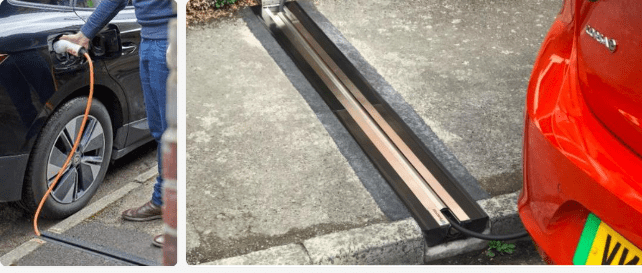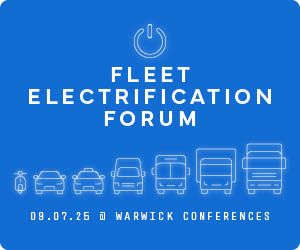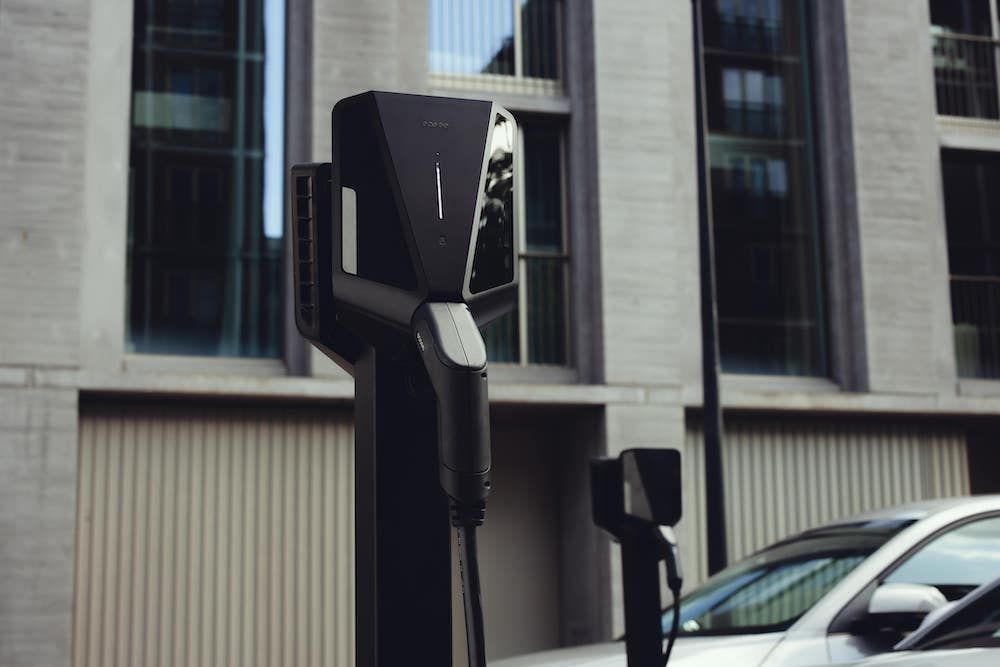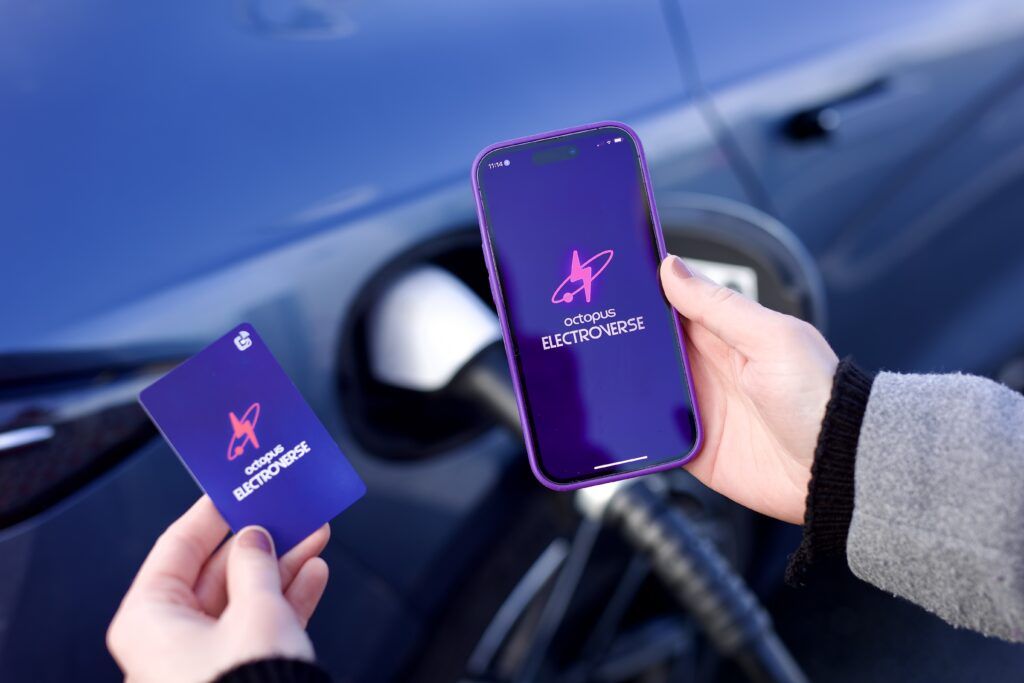The Government has unveiled its £1.6 billion Electric Vehicle Infrastructure Strategy which includes plans to support the UK market to reach 300,000 public EV charge points by 2030. A £450 million Local Electric Vehicle Infrastructure [LEVI] Fund will see local authorities able to bid for funding to help accelerate the rollout of EV hubs and on-street charging whilst the existing £950m Rapid Charging Fund will support the rollout of at least 6,000 high powered super-fast chargepoints across England’s motorways by 2035.
Under the strategy, key barriers to EV driving are set to be removed with chargepoint operators legally required to meet rigorous standards and drivers of electric vehicles able to pay by contactless, compare charging prices and find nearby chargepoints via apps. BP Pulse has also announced its own plans to spend £1 billion on developing charging infrastructure in the UK with more high-speed charging in dedicated hubs and on existing fuel and convenience sites.
According to the Government, 300,000 public EV chargepoints is equivalent to almost five times the number of fuel pumps on our roads today.
Backed by £1.6bn, under the Electric Vehicle Infrastructure Strategy the Government says “charging will become easier and cheaper than refuelling a petrol or diesel car”.
The new strategy sets out the Government’s aim to expand the UK’s charging network so that it’s robust, fair and covers the entire country – as well as improving the consumer experience at all chargepoints, with significant support focussed on those without access to off-street parking, as well as on fast charging for longer journeys.
£500 million will be invested to bring high quality, competitively priced public chargepoints to communities across the UK. This includes a £450 million Local Electric Vehicle Infrastructure [LEVI] Fund which will boost projects such as EV hubs and innovative on-street charging, so those without driveways don’t miss out on cleaner transport.
A pilot scheme for the LEVI fund will see local authorities bid for a share of £10 million in funding, allowing selected areas to work with industry and boost public charging opportunities. Meanwhile the LEVI funding includes up to £50 million to fund staff to work on local challenges and public chargepoint planning – ensuring that any development complements all other zero emission forms of travel, such as walking and cycling.
The existing £950m Rapid Charging Fund will support the rollout of at least 6,000 high powered super-fast chargepoints across England’s motorways by 2035, ensuring the UK continues to lead the Western world in the provision of rapid and ultra-rapid public chargers.
This comes on top of Ministers’ pledge to continue addressing any barriers to private sector rollout of chargepoints, such as local councils delaying planning permission and high connection costs. Ambitious and innovative chargepoint operators are already committed to installing an additional 15,000 rapid chargepoints across England’s entire road network – a quadrupling of the current offer – and over 100,000 on-street chargepoints by 2025.
Prime Minister Boris Johnson said: “We’re powering ahead with plans to help British people go electric, with our expanding charging network making journeys easier right across the country.
“Clean transport isn’t just better for the environment, but is another way we can drive down our dependence on external energy supplies. It will also create new high-skilled jobs for our automotive and energy sectors and ultimately secure more sustainable and affordable motoring for all.”
The Government is mandating that operators provide real-time data about chargepoints. It is ensuring that consumers can compare prices and seamlessly pay for their charging using contactless cards. They will also be able to use apps to find their nearest available chargepoint.
These plans will also require a 99% reliability rate at rapid chargepoints to ensure they are world-class, and give consumers confidence in finding chargepoints that work wherever they travel – helping eradicate so-called ‘range anxiety’.
Even with recent trends in electricity prices, EVs still benefit from lower fuel, running and maintenance costs than their petrol and diesel equivalents and the strategy hopes to encourage drivers across the nation to make the switch. Production costs also continue to fall and some analysts expect purchase price parity with petrol and diesel cars to be reached well within the 2020s.
This forms part of wider Government plans to reduce the UK’s reliance on imports of foreign oil, improving the security of the country’s energy supply and reducing vulnerability to volatility in global energy prices.
Transport Secretary Grant Shapps said: “No matter where you live – be that a city centre or rural village, the north, south, east or west of the country, we’re powering up the switch to electric and ensuring no one gets left behind in the process.
“The scale of the climate challenge ahead of us all is well-known, and decarbonising transport is at the very heart of our agenda. That’s why we’re ensuring the country is EV-fit for future generations by the end of this decade, revolutionising our charging network and putting the consumer first.”
Richard Bartlett, Senior Vice President, bp pulse said: “This £1 billion investment is vital to provide the charging infrastructure the UK needs. We’re investing to build a world-class network. This investment allows us to deliver more. More high-speed charging in dedicated hubs and on existing fuel and convenience sites. More home charging services. And crucial enhancements to our digital technology that will make charging fast, easy and reliable.”
Alongside the strategy, the Government is additionally launching an Automotive Roadmap outlining joint Government and industry commitments to achieve the decarbonisation of road transport. This is the first in a series of Roadmaps that will be published over the course of the year for each sector of the Prime Minister’s Ten Point Plan, showcasing how the UK is delivering on its green commitments.
The Roadmap brings together the Government’s policies designed to help and support the automotive sector in the shift towards greener transport and will help businesses plan more effectively in the transition to a zero-emission future.
The full strategy is available to view here.
Industry reaction:
BVRLA Chief Executive, Gerry Keaney, said: “This strategy is a major step forward that will give greater confidence to the millions of road users that need to make the switch to electric over the next decade. The recognition for the mix of different charging solutions is crucial. It is not simply about having more chargers, we need the right solutions, placed strategically to be accessible to all drivers.
“We know that Government and officials are keen to learn about and support fleets with their infrastructure challenges. As a sector that buys and operates more than 50% of EVs in the UK, we would like to see these priorities acknowledged, with more consideration given to appropriate support and interventions.
“The BVRLA’s Fleet Charging Guide was launched last month and highlights a number of the gaps left by the EV Infrastructure Strategy. We have particular concerns around charge point accessibility for commercial vehicles and believe that the Government needs to start planning for HGV-compatible infrastructure as soon as possible.”
Tom Pakenham, Founder/MD of ChargeLight, said: “70% of EV charging takes place at home, where it is cheapest and most convenient, but 30% of UK households do not have off-street parking. The government needs to focus more on addressing the lack of on-street residential charging, and do so in the most affordable way possible.
“It is positive that the government has recognised the pressing need for public charging infrastructure, but it must help local authorities act faster to install chargers. A lack of urgency is slowing down the uptake of electric vehicles. The government urgently needs to do more to ensure best value for (taxpayers’) money and installation of the lowest carbon solutions. Both of these things are currently being overlooked and can be best achieved by utilising existing infrastructure to the fullest extent, e.g. lampposts. It is a missed opportunity that the infrastructure strategy has not placed greater emphasis on this.
“We remain concerned that central and local government are not focusing enough on the long-term charging / energy cost to the end consumer. Public charging will be used by the least well off in society who must not be locked into the high charging costs that come with expensive infrastructure, such as rapid hubs. Lamppost charging is the lowest cost, lowest carbon and lowest clutter form of public charging infrastructure. What’s more, they are the quickest route to scaled infrastructure, taking only 30 minutes to install. It is disappointing that the government has not yet recognised this and want to draw attention to the fact that in Portsmouth more than 70% of their public chargers are in lampposts. In Westminster it’s more than 80%.”
Melanie Shufflebotham, Co-founder and COO, Zap-Map: “EV charging infrastructure is already growing at around 60% year on year in the two key areas of ultra rapid charging and on-street provision, but it isn’t equally distributed. Some areas of the country covered better than others — Scotland and London far more so than Wales and Northern Ireland, for example. So more local funding is very welcome, but we need to look at diversity of charging needs and not just the 300,000 headline figure.
“As more drivers make the switch to electric, fewer proportionally will have home chargers and as a result be reliant on the public network for day-to-day charging. This is where the local charging initiatives are critical whether this is low powered on-street provision for overnight charging or local charging hubs. In parallel, the en-route rapid charging network needs to continue to grow with a greater number of charge points at each location, to provide high speed, reliable charging for all.
“It’s brilliant to see greater funding, and a commitment to making charging and paying for charging simpler, as we do through the Zap-Map app, including live status data and cross-network payment with Zap-Pay. Electric vehicles are at the tipping point into mainstream, so it’s crucial we make EV charging straightforward and fair as possible.”
Kate Tyrrell, Co-founder of ChargeSafe, said: “The Government must take electrification much more seriously now. The investment required to meet demand of public charging infrastructure is key to encouraging more drivers to finally say goodbye to their ICE vehicles. I’d like to see a measured and thoughtful approach, rather than inflated empty numbers and excitable sparkly promises that are easily broken. I’d like to see specifics around accessibility measures and minimum requirements such as lighting and security cameras at a charge point site for visibility. There has to be a watchdog coming for the sector to ensure best practice and a quality standard that should be met by the CPO and landlords with the end users’ best interests in mind. We needed this in 2020, so swift action is critical to ensure the ongoing success of the EV revolution.”
Jacob Roberts, Transport Policy Manager at the Association for Renewable Energy and Clean Technology (REA), said: “The REA strongly supports the Government’s commitment to delivering a world-leading EV charging infrastructure network that meets the needs of all EV users. By 2030, the Government expect around 300,000 public chargepoints will be needed to enable the transition to EVs – and we believe that this can be achieved, with this rapidly expanding industry having delivered 37% growth in chargepoint numbers in the last year alone.
“This growth can only be maintained, however, if investment can be mobilised at pace. We welcome the Government providing funding to overcome market failures and speed up local rollout of EV chargepoints, whilst allowing room for continued private investment to grow the UK’s public EV charging network. The Government’s next step should now be to remove the practical and administrative barriers which too often delay new chargepoint projects.
“The REA and its members are already committed to providing an excellent consumer experience, and therefore we welcome the consumer regulations also announced today. These regulations set the standards operators are expected to meet and will improve the overall charging experience. We are particularly pleased that the regulations include requirements for interoperability and roaming – something the REA has long argued for.”
Electric Vehicle Association (EVA) England CEO James Court said: “Price transparency, better roaming services and increased charger reliability are important pieces of the jigsaw puzzle helping increase the confidence of people looking to make the switch to EVs, as well as giving our members a better service which we welcome.”
Gill Nowell, Head of EV at LV= General Insurance, commented: “This strategy shows the Government’s ambition for electric cars, but more still needs to be done in order to help people feel comfortable to make the switch to electric. It’s vital that charging provision is rolled out equitably across the UK, and that those who cannot charge at home are not disadvantaged by having to pay more than those who can. Additionally, there has to be a flexible approach undertaken to truly ensure that the right chargers are located in the right place to meet changing needs, and crucially are safe to use and accessible to everyone.”
Toddington Harper, CEO of GRIDSERVE, said: “This decade is critical for the UK’s electric vehicle transition. With the 2030 ban on new petrol and diesel vehicles quickly emerging, we must ensure that we have the charging infrastructure in place to support current and future electric vehicle drivers. In addition to our world leading Electric Forecourts® , GRIDSERVE are currently delivering the biggest upgrade to the motorway charging infrastructure in UK history, ensuring the UK’s motorway charging infrastructure is ready for the mass adoption of electric vehicles.
“We welcome the Government’s commitments to expanding the UK’s charging network, and it’s crucial these commitments are met with action. The race is now on for the industry to accelerate the deployment of chargers across the country, giving drivers in all corners of the UK access to dependable charging, and in turn, complete confidence to make the switch to electric vehicles.”
Paul Willcox, Managing Director, Vauxhall, commented: “The electric vehicles (EVs) sold now not only help to reduce air pollution, and our fossil fuel use, today but they become the used electric vehicles of tomorrow – enabling more of the UK to transition quicker to zero-emissions-in-use motoring.
“With demand for EVs rising, and an expanding choice of EVs available, we believe that public confidence in a visible, reliable and easy to use charging network is key – especially for those who do not have the luxury of off-street charging.
“Vauxhall recently welcomed the Government’s Zero Emission Vehicle mandate announcement – a target on the amount of EVs sold in the UK – on the basis of it taking a 360-degree approach and including complimentary targets on charging infrastructure.
“Whilst we welcome the Government’s Electric Vehicle Infrastructure Strategy, we feel that it is a missed opportunity to provide certainty to customers by mandating binding targets on the roll-out of the charging infrastructure in the UK. It is essential that infrastructure keeps pace with market demand, or in fact leads demand, to remove any customer fears of ‘charging anxiety’ and accelerates the electrification of Britain’s roads as quickly as possible.”
Joel Teague, CEO of Co Charger, added: “This is a mixed bag; some really big gains but a huge opportunity missed. Much needed reliability, consistency and differentiation of purpose in public charging are front and centre. It’s good to see the excellent work of the Renewable Energy Association and EV Energy Taskforce coming through so strongly. However, the biggest imaginable open goal is once again missed (at least in the announcement; we’ll see what the paper itself says).
“An 8-year plan to spend billions of tax-payers’ money on 300,000 charge points sounds great – until you remember that we ALREADY HAVE 300,000 charge points. By encouraging the sharing of those home and work place charge points via #CommunityCharging through platforms like Co Charger we could double or triple our publicly available charge points – immediately, for free and with it scaling automatically as EV sales continue.
“Research shows very clearly that if the 14 million of us who cannot have home chargers are to switch to EVs we need affordable, convenient, dependable charging. That means bookable charging while at home. That means Community Charging. The question I’d ask is: “How different would this report have looked if everyone had a driveway?” The answer is: much quicker, much more affordable and much more effective in driving the transition to #sustainabletransport.”
Ian Johnston, the CEO of Osprey Charging, noted: “Today’s announcement by the government is an important step towards ensuring that we have the right number of charging points in all locations across the UK. This is crucial to give everyone the confidence that when they make the switch to electric, they will be able to charge as easily as they refuel today – whenever and wherever they are. These charging stations simply must be reliable, easy to navigate and importantly, accessible for all. There are already many billions of pounds of private investment committed for the deployment of charging infrastructure across the UK from leading networks like Osprey, and the announcements today will allow this funding to provide the critical infrastructure to the areas that are as yet underserved – notably the motorway service areas and the Local Authority towns and cities across the nation. We look forward to working with the government to help bring this strategy to life, delivering a high quality, inclusive, open-access and reliable charging network that’s worry free, comfortable and enjoyable to use.”
Chris Pateman-Jones, CEO of Connected Kerb said: “The government’s announcement today sends a clear signal that the rollout of EV charging needs to increase in scale and urgency. Now, the work is on for the industry to ramp up the deployment of chargers in towns, villages, cities and across motorway networks, to ensure that no one gets left behind in the EV transition and that all drivers are supported with convenient, reliable and affordable charging solutions.”
“For on-street charging, councils are in a unique position to facilitate the mass rollout of EV chargers to support their residents without access to off-street parking. By partnering with independent charge point operators, councils can unlock the private investment needed to accelerate the deployment of chargers at the scale required to meet the UK’s charging needs.”
Edward Sargent, Business Development Director at Pivot Power, said: “Low or zero carbon transportation must be attractive and accessible for all road users, and we welcome the Government’s focus on fast charging and support for the much needed EV hubs. Decarbonising transport remains an obstacles to achieving net zero, and there is no time to wait. We are really pleased to be working with Oxford City Council to deliver Europe’s most powerful EV charging hub, and have plans to build more across the UK as quickly as we can. As ever, I hope that today’s announcement can act as the gear change we need to cut emissions and accelerate towards a greener future.”
Phil Shadbolt OBE, CEO of EZ Charge, said: “Those of us in EV circles have always been very quick to criticise the government when they’ve got things wrong in the past or when they’ve been too slow to act or too lacking in ambition. So, it’s only fair that we give praise when it’s due.
“Today’s announcement of the new Electric Vehicle Infrastructure Strategy delivers the right level of investment and ambition at exactly the right time. This will make a massive difference and will really help the UK become global leaders in electric vehicle adoption.”
“The announcement of the new funding is one thing and is certainly very welcome. But it’s the introduction of the new legislation I’m most pleased about. For too long many charge point operators have tried to force customers to use only their networks by making them pay a membership fee or download an app to charge. This is not only really inconvenient for electric car drivers, it’s really off-putting to those thinking about making the switch. Forcing operators to do away with these kinds of outdated practices and make the UK’s charging infrastructure work for everybody will be a big step forward.”
Image courtesy of Shutterstock.














